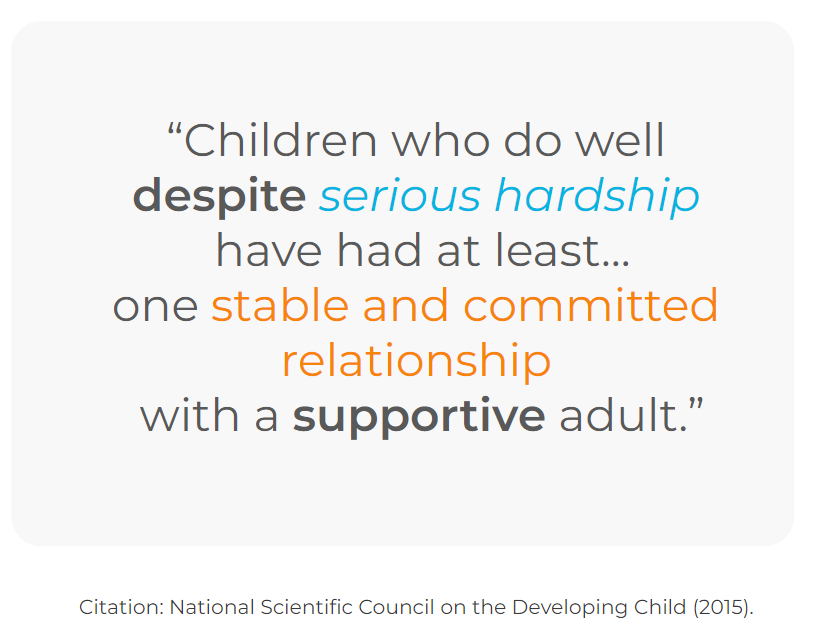Share this
Addressing Mental Health in Schools: Top Tips and How to Implement
by Connie Warren, M.Ed. on Dec 15, 2023 9:00:00 AM

Recent surveys and studies have shown a concerning rise in anxiety, depression, and other mental health issues among students. Factors like social isolation, remote learning, and disrupted routines contribute to this crisis. For example, a 2021 study by the Centers for Disease Control and Prevention (CDC) reported that mental health-related emergency department visits increased by nearly 31% among teenagers during the height of the pandemic compared to the same period in 2019. Schools, being central to children's daily lives, are uniquely positioned to address this crisis. Here's a look at what's being done and how schools can get involved.
Implementing Mental Health Screenings and Services
At the present time, implementing mental health screenings and services in schools appears to be more of a recommendation for best practices rather than a federal directive. The approach to mental health in schools varies widely across states and is subject to ongoing debates and legislative actions.
Other ways to support
Training Educators and Staff
-
Trauma-Informed Care
- Definition: Trauma-informed care is an approach that acknowledges the widespread impact of trauma and understands the potential paths for recovery.
- Key Components: Safety assessments, staff training on trauma awareness, and mechanisms for student support.
- Impact: Schools that have incorporated trauma-informed care into their instructional materials report an overall improvement in school climate and student well-being.
- Further Reading: Trauma and Learning Policy Initiative
Peer Support Initiatives
-
Emotional Intelligence Training
- Definition: Emotional intelligence is the ability to understand and manage one’s own emotions, as well as those of others.
- Key Components: Empathy exercises, conflict resolution skills, and emotional self-assessment.
- Impact: Research indicates that emotional intelligence training can improve interpersonal relationships among students, reduce incidents of bullying, and enhance academic performance.
Utilizing Telehealth Services
-
Mindfulness Exercises
- Definition: Mindfulness refers to the practice of focusing one's awareness on the present moment while acknowledging and accepting one's feelings, thoughts, and bodily sensations.
- Key Components: Breathing exercises, guided meditation, and sensory focus activities.
- Impact: Studies have shown that incorporating mindfulness exercises into instructional materials has led to reductions in student stress and anxiety levels.
- Further Reading: Mindfulness in Schools Project
How to Get Started: Action Steps for Schools
- Assess Current Capabilities: Schools should start by evaluating their current mental health services and identifying gaps. This includes assessing the availability of counselors, psychologists, and other mental health resources.
- Seek Partnerships and Funding: Collaboration with local health agencies, mental health organizations, and seeking grants can provide the necessary support and resources for implementing these initiatives.
- Train and Educate Staff: Invest in the professional development of teachers and staff to make them effective first responders to mental health issues.
- Engage the School Community: Involve parents, students, and the wider community in the conversation about mental health. This not only raises awareness but also helps in creating a supportive environment for students.
- Monitor and Adapt: Continuously monitor the effectiveness of these initiatives and be open to making adjustments as needed. This could involve soliciting feedback from students, staff, and parents.
Enhancing School Connectedness
Research underscores the importance of school connectedness – the feeling among students that adults and peers in their school community care about their well-being and success. Schools can foster this by improving classroom management, promoting service-learning opportunities, and ensuring a supportive environment for all students, including those from marginalized communities. The CDC’s What Works in Schools program offers valuable guidance and funding opportunities for schools looking to make such changes.
The Importance of Consistent Relationships in Learning
Consistent relationships can serve as an anchor for all students, but especially those experiencing tumultuous times. BookNook offers a way to establish such relationships through its In-house Delivery and Virtual Tutor Service options. A stable, reliable tutor can provide not just academic support but also serve as an emotional touchpoint, thus contributing positively to a student's mental health.

Read More:
Share this
- January 2026 (3)
- October 2025 (2)
- September 2025 (1)
- August 2025 (1)
- July 2025 (1)
- June 2025 (1)
- April 2025 (2)
- March 2025 (3)
- January 2025 (3)
- December 2024 (1)
- November 2024 (1)
- October 2024 (4)
- September 2024 (2)
- August 2024 (3)
- July 2024 (2)
- June 2024 (4)
- May 2024 (3)
- April 2024 (4)
- March 2024 (4)
- February 2024 (3)
- January 2024 (5)
- December 2023 (3)
- November 2023 (5)
- October 2023 (5)
- September 2023 (5)
- August 2023 (4)
- July 2023 (5)
- June 2023 (8)
- May 2023 (2)
- April 2023 (3)
- March 2023 (4)
- February 2023 (1)
- January 2023 (1)
- November 2022 (1)
- October 2022 (1)
- September 2022 (1)
- August 2022 (1)
- June 2022 (1)
- April 2021 (1)
- March 2021 (1)
- October 2020 (1)
- December 2019 (1)
- November 2019 (1)
- October 2019 (1)
- July 2019 (1)
- January 2019 (1)
- December 2018 (1)
- October 2018 (1)
- August 2018 (1)
- May 2018 (2)
- April 2018 (1)
- March 2018 (2)
- February 2018 (2)